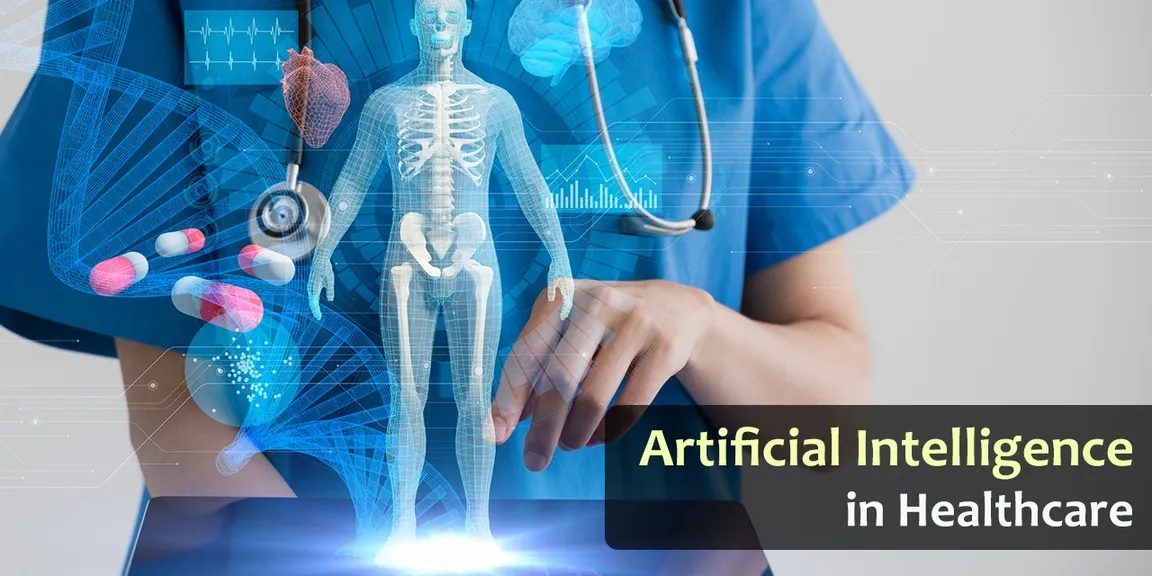AI in Healthcare: Revolutionizing the Future of Medicine
Introduction:
Artificial Intelligence (AI) is transforming the
healthcare industry, revolutionizing the way we approach diagnostics,
personalized medicine, drug discovery, and patient care. By harnessing the
power of AI algorithms and advanced data analytics, healthcare professionals
can enhance their decision-making capabilities, improve patient outcomes, and
optimize resource allocation. In this blog, we will explore the remarkable
impact of AI in healthcare and delve into its key applications that are shaping
the future of medicine.
1. Diagnostics:
AI has emerged as a game-changer in medical
diagnostics, enabling faster and more accurate detection of diseases. Machine
learning algorithms can analyze vast amounts of patient data, including medical
images, genetic information, and clinical records, to identify patterns and
indicators of various conditions. For instance, AI-powered imaging systems can
detect early signs of cancer, identify abnormalities in radiology scans, and
assist in the diagnosis of diseases like Alzheimer's and diabetic retinopathy.
2. Personalized Medicine:
One of the most promising aspects of AI in healthcare
is its potential to deliver personalized treatment plans based on individual
patient characteristics. By analyzing large datasets and patient-specific
information, AI algorithms can generate insights into optimal treatment
options, dosage recommendations, and potential adverse reactions. This empowers
healthcare professionals to tailor treatments to the unique needs of each
patient, improving efficacy and minimizing side effects.
3. Drug Discovery:
AI is accelerating the process of drug discovery by
streamlining and optimizing research and development efforts. Machine learning
models can analyze vast amounts of biomedical data, including genomic
information, protein structures, and chemical properties, to identify potential
drug candidates and predict their efficacy. This enables researchers to
prioritize and target the most promising compounds, expediting the drug
discovery process and reducing costs.
4. Patient Care and Monitoring:
AI technologies are enhancing patient care and
monitoring, leading to more efficient and proactive healthcare delivery.
Intelligent algorithms can continuously analyze patient data, including vital
signs, electronic health records, and wearable device readings, to detect
anomalies and provide early warnings for deteriorating health conditions.
AI-powered chatbots and virtual assistants can offer personalized health
advice, assist in remote patient monitoring, and improve patient engagement.
5. Medical Research and Predictive Analytics:
AI is facilitating groundbreaking medical research by
analyzing vast amounts of data and uncovering hidden patterns and insights. By
leveraging predictive analytics, AI algorithms can assist in forecasting
disease outbreaks, identifying population health trends, and optimizing
healthcare resource allocation. This empowers policymakers and healthcare
organizations to make informed decisions, prevent the spread of diseases, and
allocate resources effectively.
Conclusion:
The integration of AI in healthcare is ushering in a
new era of precision medicine, enhanced diagnostics, and optimized patient
care. From assisting in accurate disease diagnosis to enabling personalized
treatment plans and revolutionizing drug discovery, AI is transforming every
aspect of the healthcare industry. However, it is crucial to address ethical
considerations, data privacy, and the need for human oversight to ensure the
responsible and beneficial use of AI in healthcare.
As AI continues to evolve, its potential to improve
patient outcomes, advance medical research, and drive innovation in healthcare
is limitless. By embracing the power of AI and collaborating with healthcare
professionals, we can unlock new possibilities and shape a future where
technology and human expertise work hand in hand to deliver exceptional
healthcare for all.




Comments
Post a Comment